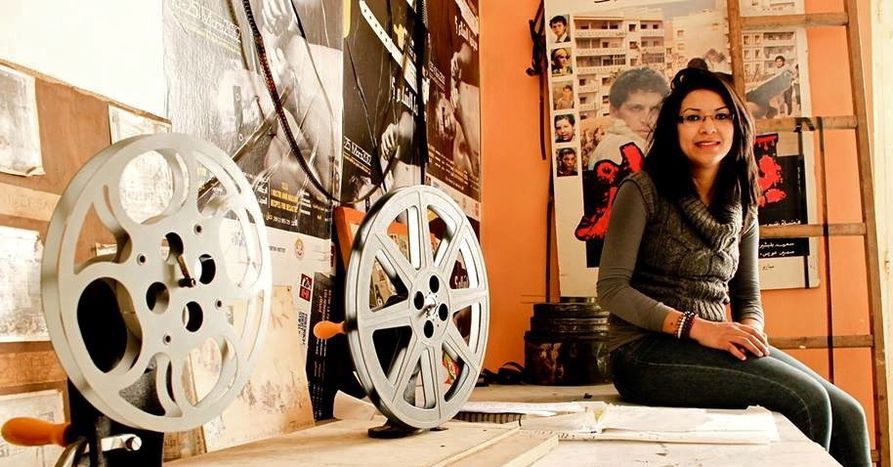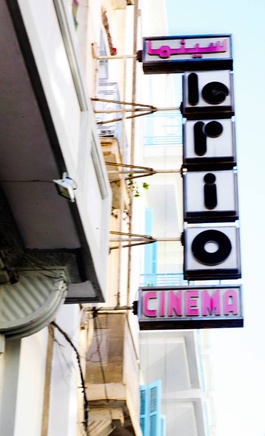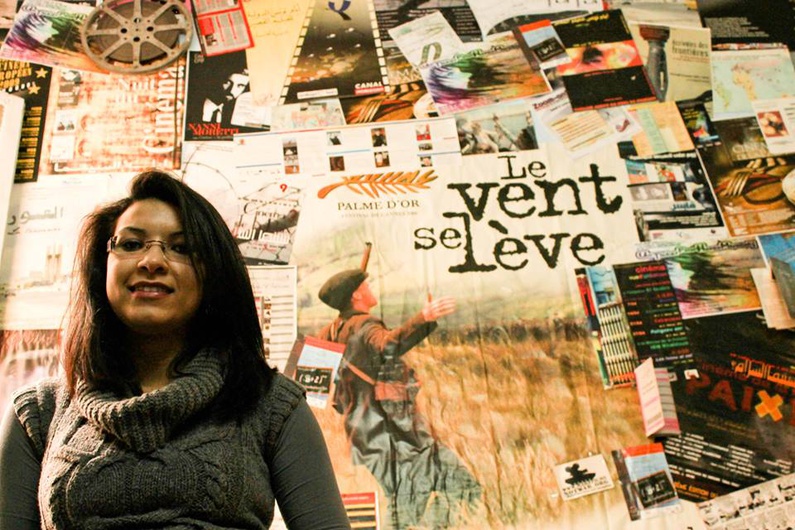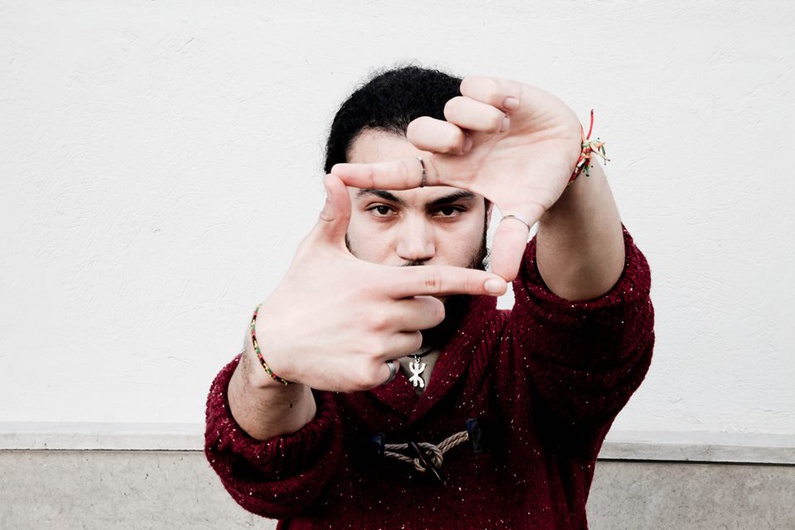
The cinema clubs of Tunis: Art and resistance
Published on
Translation by:
Neeraj NagarkattiSince their establishment in the 1960s, film clubs in Tunisia have been spaces of creative and intellectual freedom. They’re a breeding ground for trainee film-makers passionate about the seventh art as well as activists from across the left-wing spectrum- the opposition to the regimes that have ruled the country since its independence.
The Tunisian capital's film offerings are confined to a handful of rooms scattered away from Avenue Bourguiba, the main artery of Tunis. Le Mondial, Le Rio and Le Colisée are old colonial buildings, sinfully appealing to the unfamiliar eye, yet sadly inadequate for lovers of the seventh art. Camouflaged among them flows another stream: film clubs, the getaway from the Hollywood track, the saviours of Tunisian cinema and the refuge for a plethora of different activists.
Until the Arab Spring sparked off here three years ago, people lived under an authoritarian regime in which censorship was choking freedom of expression and crippling Tunisian cinema. Whether you like it or not, politics permeates everything in film clubs. This was the story before the revolution on 14 January 2011 and now it is even more so.
FOR THE LOVE OF CINEMA
"Too much politics," emphasises Amel Saadallah after a few seconds of thought, when asked why she founded Cinémadart, one of the first independent clubs in the Federation of Tunisian Cinema Clubs (FTCC). For the last seven years, every Tuesday, this nomadic space, located within walking distance of the Carthaginian Ruins, played all kinds of films which couldn’t find a place in the closed circuit of national film listings. For instance today, three short films made in Tunisia, aroused a heated cinematic debate when the lights came back on. The abundance of horn-rimmed glasses, skinny jeans, red lips, and berets that fill the room would make anyone think that were in an intellectual-bohemian-chic gathering in a European capital. If it were not for the language, of course- Arabic in Tunisian dialect, peppered with French words and expressions. From her cinema seat, Amel listens attentively to the discussion between the film directors and the motley mass of the public. Later on she tells me, "it sometimes seems that the film is just an excuse to discuss other political issues. We want it to be the other way round." This girl with gentle manners and a combative countenance believes that film clubs have lost the essence of what they represent, and she aspires to remove herself from the '”activism” to focus on "the love of cinema, for cinema’s sake."
a few seconds of thought, when asked why she founded Cinémadart, one of the first independent clubs in the Federation of Tunisian Cinema Clubs (FTCC). For the last seven years, every Tuesday, this nomadic space, located within walking distance of the Carthaginian Ruins, played all kinds of films which couldn’t find a place in the closed circuit of national film listings. For instance today, three short films made in Tunisia, aroused a heated cinematic debate when the lights came back on. The abundance of horn-rimmed glasses, skinny jeans, red lips, and berets that fill the room would make anyone think that were in an intellectual-bohemian-chic gathering in a European capital. If it were not for the language, of course- Arabic in Tunisian dialect, peppered with French words and expressions. From her cinema seat, Amel listens attentively to the discussion between the film directors and the motley mass of the public. Later on she tells me, "it sometimes seems that the film is just an excuse to discuss other political issues. We want it to be the other way round." This girl with gentle manners and a combative countenance believes that film clubs have lost the essence of what they represent, and she aspires to remove herself from the '”activism” to focus on "the love of cinema, for cinema’s sake."
Of course, striving to live the seventh art in a country where the number of feature films produced per year can be counted on one hand, and where there are little more than a dozen projection rooms in the background, is another form of struggle. Fatma Bchini, president of the Tunis film club, the oldest in Tunisia, knows it only too well. "Buying a cinema ticket in Tunisia is already a drag,"argues this 23-year-old medical student, who is also part of the Federal Committee of Film Clubs. Fatma talks passionately about the work of the film clubs, and she is hopeful that these places will play an important role in the new Tunisia.
 “We want to open film clubs for children, to cure their generation's collective amnesia, to teach them to create and to build." Today, there are three times as many film clubs as there are rooms, remarks Fatma proudly, "not a day goes by without the Federation receiving a new application."
“We want to open film clubs for children, to cure their generation's collective amnesia, to teach them to create and to build." Today, there are three times as many film clubs as there are rooms, remarks Fatma proudly, "not a day goes by without the Federation receiving a new application."
NO POLITICS, PLEASE!
"They were so unpleasant and strict, the League could tell they were cops," mocks Maher ben Khalifa, an integral part of this underworld since he first landed in a film club as a 7-year-old boy. He refers to the undercover agents who regularly attended the meetings of his amateur film-makers club, noting down who said what.
Ironically, as they were observing closely, the powers that be put up with these pockets of dissent, in part because of their low visibility among the bulk of the Tunisian population and partly as a strategy to save face in the eyes of Western democracies. In any case, "regardless of whether you take part, film clubs teach you to discuss. And the debate is free from politics. Here you learn to defend your ideas. And to commit to them," explains Maher, who is a student of graphic design.
LACKING RESOURCES, BUt NOT IMAGINATION
Maher belongs to the Tunisian Federation of Amateur Filmmakers (TFAF) and thanks to this, at the age of 17, he made his first short film, Kari for dogs, a spoof advert, which, inspired by the torture of prisoners at Abu Ghraib, advertised dog food made of human flesh. Quite openly, he admits that, at least on a technical level, his first foray into film was "something of a disaster."
His experience reflects well on how this profession works in Tunisia: for a long time, the clubs were the only film school in the country. Several generations of directors were trained under that set up, as well as an assortment of anonymous citizens who simply wanted to tell their story. Today Maher is part of the central committee of the TFAF, and ensures everyone is represented, "from engineering students to bakers and taxi drivers. It's simple, we assume that everyone who wants to, should be able to make films," he asserts, recalling that film clubs have even seen the likes of ministers from the Ben Ali régime.
When it comes to producing films with limited resources, you draw upon the imagination and your DIY skills, plucking materials and ideas out of thin air. "I started my film career by stealing two cameras," says director Sami Tlili, without any major hang-ups. He is another film nut who went into directing after setting up a film club in his hometown of Sousse.
Like any good amateur filmmaker, he scoffs at big budget films. "If a single screw goes missing, it spreads panic and shooting comes to a halt!” he marvels. His first film, a documentary titled Cursed be the phosphate, tells the story of the revolts in the Gafsa mining basin in the spring of 2008, what many consider today to be the real heart of the Arab revolutions. "Despite the hurdles, it was worth it." On the alternative circuit, we have been the only ones dealing with this type of issue," says Tlili, "In the political situation we had, the regime was killing our dreams. Film helped us keep the dream alive."
This article is part of the Euromed Reporter project, conducted in partnership with I WATCH and Search For Commong Ground and supported by the Foundation Anna Lindh.

Translated from Túnez Cinema Club: resistencia en la escena alternativa



